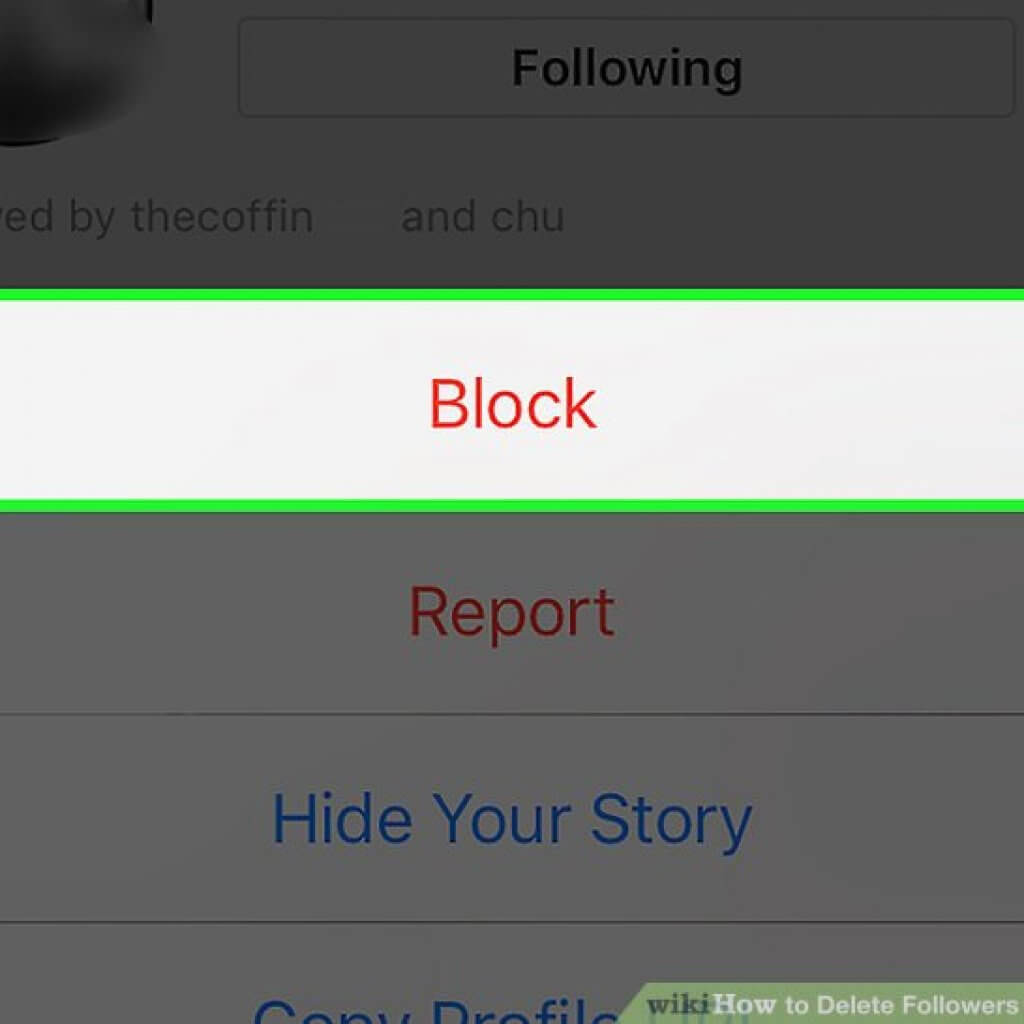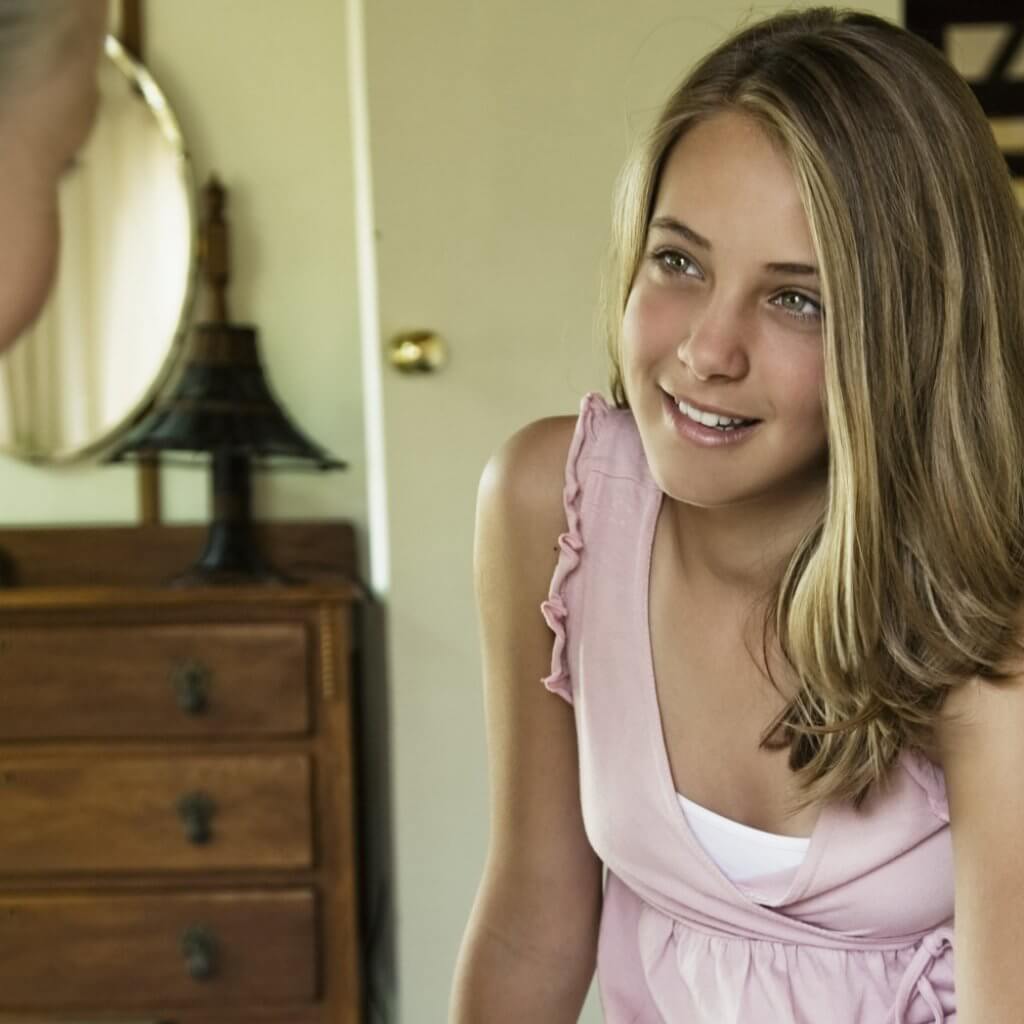A Guide to Keep Your Kid Safe on Social Media

Before the internet, parents only had to be concerned with what their kids were up to in their own homes, at school, at friends’ houses, and various public hangouts. Well, the world is pretty different than it was twenty-five odd years ago (since the internet began to find its way into every household—and eventually most pockets), and now parents are faced with wondering how to keep their children safe in the realm of social media.
It may have been (somewhat) easier when parents just had to keep track of the handful of places where their kids chose to spend their time, but now there’s almost an entire other universe that kids can access right from home. As parents—especially given how widespread social media is (it’s everywhere)—we now have to act as a parent in two different spheres: there’s the offline world, and the online world.
The sole focus is no longer whether or not our kids can get along with another and stay free from danger on the playground. We also have to make sure our kids are safe, comfortable, and well behaved in the world of social media as well. Over various social media platforms, our kids can become victims of cyberbullying, they might be more likely to meet strangers (this includes sexual predators), they can be easily exposed to sexually explicit or gruesomely violent images, or just a wide plethora of general mature content.

One of the best parts of the world wide web is that it can provide us and our children with a wealth of educational information—information that would have been much more difficult to access before the early to mid 1990’s—at the mere click of a button or tap on a screen. But, that means that it’s just as easy to find content that simply isn’t suitable for children. The bad can be found just as quickly as the good, and that’s one thing that makes the internet such a powerful tool.
One of the strangest parts about it when you really think about it, is that we have the ability to create our own personalities and identities on the internet with the same speed that we can look up a subject in an online encyclopedia or check the weather. The internet is not only a place where we find information (whether it be meaningful or totally banal), but it’s a place where we exist as individuals—individuals with our own beliefs, desires, and ways of interacting within the digital sphere.
At this point, the idea of an internet identity or personality isn’t a novel one. In the whole scheme of things, social media hasn’t been around for that long (not since the very inception of the internet, anyway) but so many of us have cultivated online identities since the initial rise of social media in the past ten to fifteen years, and it’s really just commonplace and almost an expectation. It wasn’t until the early to mid 2,000’s that social media really started to take off. Sure, there was AOL instant messenger and chatrooms, but it wasn’t until the rise of platforms like Myspace and Facebook that we as humans really began to delve into the world of digital identities.
Not only is it commonplace for us as human beings to exist in the flesh just as much as we exist in the world of ones and zeros, it’s pretty common amongst all age groups. When Facebook first showed up on the scene, it was only available for college students to use. Now, almost anyone can have a Facebook account, and that includes our children. Sure, you have to be at least thirteen years of age to create a Facebook account, but there’s nothing stopping your ten-year-old from pretending to be three years older than she really is in order to start an account.
This can really all a bit worrisome for parents, because it seems like our kids are spending so much time in a world (the internet and social media) in which we seemingly have little control over. So many social media platforms have popped up since the initial boom of Facebook (such as Twitter, Instagram, and YouTube), and everyone uses each platform differently. So, not only do we have to worry about what platforms our children are using and how they use them, but we also have to stay mindful that we don’t know exactly how other children (and even adults) are going to make use of these platforms.
With so many different platforms being used by so many different people—with so much content to share and so much to say—you might feel like there’s nothing you can do to keep your kids safe in the world of social media. As parents, we don’t want our kids exposed to material that isn’t age appropriate, we don’t want them talking to strangers, and we don’t want them being cyberbullied. It might seem unrealistic to think we can keep them completely safe from the many dangers of social media, but it’s not an impossible task by any means.
Deciding When Your Kid is Ready for a Social Media Account
Of course, before you even worry about social media safety, you and your child have to decide if she’s actually ready to have her own social media account. As far as Facebook goes, it’s required that your child at least agrees that she’s thirteen years of age or older. Again, that doesn’t mean your ten-year-old can’t lie about her age. But, you probably use certain internet monitoring tools for your children already (if you don’t, you should), so if your kid was using Facebook before the age of thirteen, you would hopefully already know about it.
So, if you’re already able to monitor your child’s internet activity, then that’s definitely going to be helpful in terms of deciding if your kid is ready for social media or not. If that’s the case—and you feel like your child is already able to use the internet responsibly—it’s time for you to have a discussion about what it means to have more responsibilities as they pertain to internet use.
This is just like discussing any other responsibilities, like chores or maybe allowing your kid to walk to a friend or neighbor’s house on her own. First, you have to explain to your child what it means to have responsibilities—meaning that you’re putting your trust in your child and you feel that she’s mature and capable enough to handle such responsibilities. Remind your child that responsibility is something you earn, and that no one is given responsibilities right off the bat.
But, putting your trust in your child shouldn’t really be looked at as a reward, so to say. It’s best if you make it clear to your kid that while she has earned the right to certain responsibilities, it’s not simply because she’s well-behaved. Having responsibility is more about possessing an understanding of what responsibility is. It’s not just a matter of being able to complete certain tasks, it’s a matter of your child comprehending why you feel she’s ready to take certain steps; you’re acknowledging the maturity of your child, and she should be able to understand the value in that.
What Being Responsible with Social Media Means
Now, once you’ve decided your child is ready, you have to properly explain to your child what social media actually is. That means you have to really make your kid understand that it’s used for social purposes. When your kid has her own social media account, it’s different than your kid just using the internet to play games or do her homework. Your child will now be in the position where she’s socializing with others—and not just others—but pretty much everyone.
Socializing with everyone means people of any and every age. That means your kid can interact with people younger than her or older than her; it means people with all sorts of opinions, proclivities, and intentions have the potential to socialize with your child. There are ways in which you can control (to certain degrees) who she can or cannot interact with, but your kid should still understand that having a social media account is a different kind of socialization than just hanging out with other kids on the playground.
Not only does your kid need to be made aware of the fact that she’s engaging in a different kind of socialization in which she can be exposed to the influence of others, but she should understand that she has just as much influence as anybody else. Think about cyberbullying for example. Your kid could get cyber bullied, but it’s just as possible that she could be doing the cyberbullying herself. You have to remind your child that the same social etiquette she practices in person should also be practiced online. Explain to her that that’s a huge part of the responsibility that you’re giving to her; you’re trusting her to play nice and to act in a mature fashion. The same rules as far as social etiquette is concerned apply regardless of if the interactions are face to face or not.
The Issue of Strangers
So, you’ve explained to your kid that she has to treat everyone on the internet in the same way she does in person—that a huge part of the responsibility of social media is simply being responsible for the way she conducts herself in social situations (whether you realize it or not, social media is just a digital form of social situations). But, we all know that social responsibility includes more than just acting amiably and mature. Being responsible for the way one socializes also pertains to the way a person interacts with strangers—especially strangers than can make a person feel uncomfortable or frightened.
- You’ve most likely been telling your kid all her life not to talk to strangers.
- Well, now your kid can meet strangers in more places than just public ones.
- The idea is probably a little bit on the frightening side, but when your kid has her own social media account, she’s making herself more vulnerable to the prospect of meeting strangers.
There are lots of social media accounts that are open for anyone on the internet to see, which means that anyone out there could potentially have the ability to socialize with your child. All it takes is the acceptance of a friend request, and all of a sudden there’s someone in your child’s life whom neither she nor you really know.
When your kid is contacted by strangers on the internet, that means the individual she socializes with can ask for pictures and all sorts of other personal details—meaning details about your family, her friends, her interests, where she spends her time, where she goes to school, where she lives, her emotional struggles, and sometimes even secrets that she’s too afraid to share with others (the pseudo-anonymity of internet identities can sometimes make it easier for individuals to confide in people they don’t know—there’s no real personal judgment etc.).

If for whatever reason your kid feels alienated from family and friends, it can make it so easy for her to connect with people she doesn’t know online. Take internet dating for example: sometimes people feel they aren’t able to connect with others who are actually present in the social spheres in which they already exist, so they turn to the internet in attempts to cultivate a meaningful relationship. Adults can form relationships with people online, and so can kids. That’s something you really have to make your child aware of.
Tell your kid that not only is it possible for her to come across and interact with strangers, but that it’s almost easier to build some sort of rapport with a stranger on the internet than it would be if she were to meet a stranger in person. If your kid meets a stranger in person, she can just walk away. When using social media though, it might be a little harder for your kid to break off an interaction with someone she doesn’t know. The internet is all about easy access, and sometimes that means easy access to other people and the things that make them tick.
This can definitely be problematic when it comes to sexual predators. Really, it’s a lot easier for a sexual predator to more or less seduce a kid online than in person. There aren’t any facial cues, and there’s no body language to examine or tones of voice to be aware of. All your kid has to go off of is the words that appear on the screen (at least if it’s a conversation and not just a mere exchange of various images).
What’s the best solution to limiting the issue of strangers? Just tell your kid to keep her account private—that way she has at least some control over who can find about her life and who can’t.
Keeping Track of Your Kid’s Online Relationships
While you certainly want to keep in mind the possibility of your teenager developing a relationship with a stranger through social media, you can’t let it terrify you; mainly because you can actually have some control over who it is your child interacts with.
A great way to monitor (not police, but monitor) the relationships your kid has with someone on something like Facebook, is to simply have a Facebook account yourself. Really, this goes for any social media account; if your kid has Twitter or Instagram, then you should too.
If your kid has a Facebook account, and you do as well, then you’ll be able to keep track of who your kid’s friends are, and what your kid is up to by looking at what your kid posts (of course, your kid has to accept your friend request first (she probably will), but if she’s reluctant to do so, you just have to explain to her that that’s part of the deal). If you notice your kid befriends someone on Facebook that you don’t know, ask your kid about this particular person. Find how she knows this person and how she well knows them. Ask your kid if she trusts this person, and for what reasons she either does or doesn’t.
If you don’t know who it is (and your kid doesn’t really either), remind your kid about the dangers of meeting strangers through the use of social media. Your kid definitely isn’t going to like the fact that you’re trying to have some control over her social circles (even though it may be online), but social media is different than meeting someone at school, or another kid in person. For instance, people lie about who they are on the internet all the time. Your kid may think she’s meeting another kid her age, when in fact she’s in contact with an adult whose intentions are harmful and dangerous to your kid (they can really be harmful to anyone no matter the age). It’s very easy for an adult to pretend that she’s a kid, and your own child needs to understand that.
Interactions That Make your Kid Uncomfortable
If for whatever reason you missed some relationship or interaction that your kid developed through the internet—or you simply just can’t keep track of them all—tell your kid that she should tell you about any interaction she has that makes her feel uncomfortable. More importantly, you have to let her know that she won’t be in trouble if she admits someone that she doesn’t know if making her feel ill at ease (this goes for people she does know as well). Even if you don’t want her having certain interactions, it doesn’t make sense to punish her if she falls into an interaction in which she finds herself distressed or afraid.
It’s a hard pill to swallow, but there’s always the chance that your kid is going to be exposed to some sort of sexually explicit material. This can happen without social media too, but when your kid becomes exposed to sexually explicit material because of other people, that can be a bit frightening for you and your kid—especially if the words or images used are from a stranger. It’s totally understandable that a kid would be hesitant to confess that she’s been exposed to sexually explicit images or words in an interaction with another individual; quite frankly, it’s just an awkward conversation to have. Regardless of how difficult or embarrassing the admission or conversation might be, your kid needs to know that she’s doing the right thing by coming to you and confessing that someone has shared sexually explicit material with her.
In a situation where your kid works up the courage to tell you what she’s been exposed to, tell her that your proud. You don’t want to make her think that you approve of what she sees or think it’s appropriate, but your child needs to know that you definitely approve of doing the right thing—even if doing the right thing means admitting that she saw things you don’t want her to see.
Again, the sharing of sexually explicit material isn’t solely a matter of communicating with strangers. It’s not unheard of that kids who know each other share such material with one another. A friend of your child could easily send your child a picture in which the one sending the images is inappropriately exposed. It’s even very possible that whomever sent the image is pressuring your kid to partake in sexual activity by sending sexually explicit images (or words). We often think of sexual harassment as something that occurs only in person, but sexual harassment can occur anywhere—and that includes the internet
If your kid feels that she’s being sexually harassed in anyway whatsoever, she should tell you. It doesn’t matter if it’s through the internet or in person—your kid should feel like she can come to you if she’s put in such compromising positions.

We also have to remember that discomforting interactions aren’t limited to discussions of sex. Someone could threaten your child with violent images or words, or someone might even tell your kid that they’re thinking of harming themselves in one way or another. You’ve already explained to your kid that using social media is a big responsibility, and that means she should come to you if she feels uncomfortable about anything that someone shares with her. Whether it’s hurtful language directed at your child, sexual or violent images that she doesn’t understand, or if your child feels that someone is in danger—your kid needs to know that it’s ok to talk about it. Being a responsible kid means knowing that you can come to adults when something doesn’t feel right—it doesn’t matter if it’s on the internet or in face to face social situations.
What it Means to Have an Internet Identity
Really, it may seem kind of strange to even speak of an internet identity as separate from an identity that exists outside the virtual realm. So many people use social media, and so many people use various platforms. Not only that, but there’s plenty of individuals who might spend more time on social media than they do socializing with people face to face (next time you’re at a restaurant just pay attention to how many people are on their phones—very likely talking to multiple individuals at once when they could be in a crowd of even hundreds of people).
With the widespread use of smartphones, people are on social media wherever they go, and they can share whatever they’re doing instantly. You can take a picture or make a video of wherever it is you are, of whatever it is your doing, and within less than a minute’s time you’ve shared that picture or video on Instagram or Snapchat. At this current juncture in history, it might almost sound absurd to say that virtual identities are any different than non-virtual ones—the ubiquitous use of social media and the sheer immediacy of it all blurs the lines to the point where the difference may seem nonexistent.
What we need to remember here, is that while there seems to be little distinction at this point between virtual and nonvirtual identities, there’s the fact that at one point in time, there was a difference; we just don’t seem to acknowledge it anymore, and we don’t realize that we’re being looked at for how we portray ourselves online. When the media wasn’t quite as developed, you couldn’t expose yourself fully and completely for the whole world to see. The issue is that the internet and social media is all about constant exposure—people have never been able to express and expose themselves so readily and easily. If a simple thought pops into your head, you can tweet it or make it your Facebook status. It may feel good or liberating to share every aspect of yourself (your thoughts, your activities) at the drop a hat, but let’s not forget a lot of people end up regretting certain things they’ve shared on social media.
Sometimes people think, “I shouldn’t have shared that. Maybe I should have thought a little bit about what I was posting before I did so.” Nothing is secret anymore—it’s almost become an impulse to reveal yourself completely through social media. A lot of times, people share things that they wish they had kept secret—or at least things they wish they’d really figured out how they felt about before sharing it. You have to make that clear to your kid—you have to make it clear that sometimes it’s not always best to share every single thought that pops into your head, or to show every single person where you are at any given time. It’s just like when you tell your kid to think before she speaks or acts. We may not realize it because nothing is really vocalized, but we’re still speaking and acting within the realm of social media.
People are going to perceive you in the way you present yourself on the internet. Given the fact that social media is used so frequently, it’s almost impossible not to. Whether that’s fair or not—or if whatever way in which you portray yourself is even accurate—that’s just how it is. Your kid may not think about it, but you have to emphasize that social media is in fact itself a form of socialization—it’s interacting with others, you’re just not doing it in person. Maybe it doesn’t make sense anymore to differentiate between virtual or nonvirtual identities, but we need to think about the fact that it’s going to be perceived at the very least as an extension of our identities. You should make your kid understand that. Let her know that the she should conduct herself in the same way she would in public as she does on the internet.
Limiting time Spent on Social Media

It isn’t practical for us to think that we can live or lives without being immersed in a screen in one way or another. We basically carry computers around in our pockets (smartphones) and many people have to work in front of a computer. Even though screens have become a huge part of our lives, it’s definitely a good idea to step away from time to time.
Your kid probably spends a lot of time in front of a screen, and sometimes you may wonder why your kid just doesn’t go and play outside. Well the reason your kid’s eyes stay glued to that screen, is because you let them. And you know what? When you give your kid access to social media she’s going to want to stay in front of the screen for longer periods of time.
If you don’t want your kid to spend so much time on social media, and you’d really like it if she would socialize with you or others in the household from time to time, you’re going to have to spend less time on social media yourself. You can’t tell your kid that there’s no more social media time after 8 pm, and then stay on social media until midnight.
As with any aspect of parenting, you have to lead by example. When you think about leading by example as it relates to social media, you have to keep in mind that it means both when and how you use it. If you tell your kid to be careful about what she posts but you aren’t careful yourself, then she’s not going to see why it’s problematic to post anything and everything.
If you want to keep your kid safe on social media, just keep the dangers in the back of your mind and make sure your kid understands them. The world of social media isn’t necessarily a solely dangerous place—just as the world outside of social media isn’t solely dangerous—but it can still be dangerous nonetheless. You just have to let your kid know that while the socialization isn’t taking place face to face, that it’s still a form of socialization.
Your kid should know who it’s appropriate to talk to and also the appropriate way to talk to others. Make sure you instill the same sense of proper etiquette—let her know that it isn’t acceptable to say things online that she wouldn’t say in public, and that given how widespread social media is, it’s often hard for others to differentiate between an in-person and virtual persona.
Social media isn’t just for adults anymore; the technology is just too accessible to really exclude anybody at this point. That being the case, you have to realize and accept that your kid is going to use social media at some point. Despite some of the dangers, there’s nothing to be afraid of (at least not enough to avoid it completely). Trying to keep your kid away from social media forever is pretty much the equivalent of not letting her go outside. Times are changing, which means the way we socialize is changing, and you’re more than capable than educating your child on the proper ways to interact with others—whether that be in person or through a screen.







